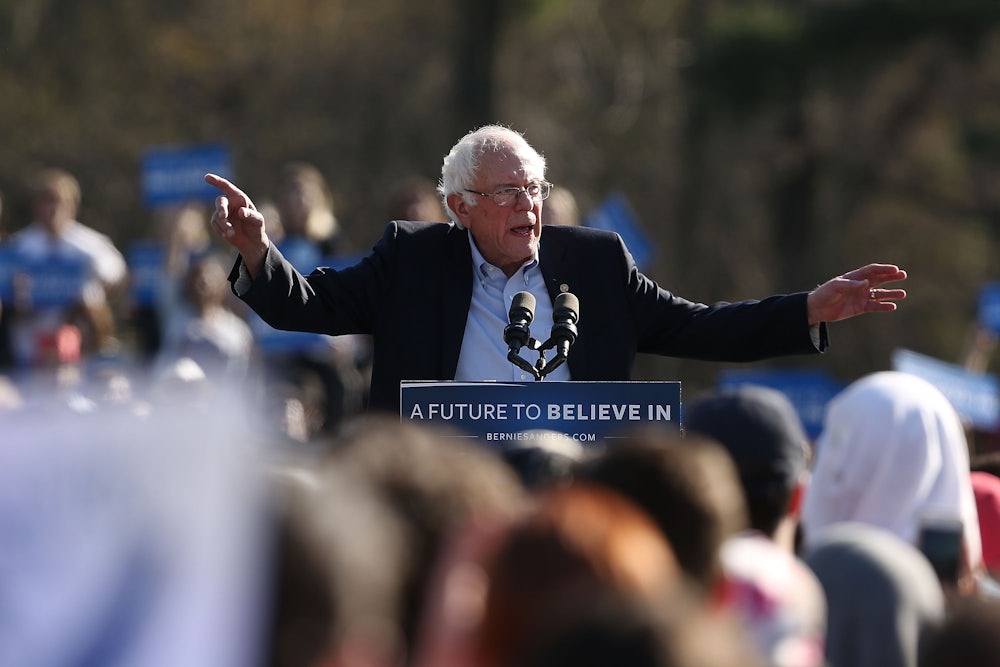Some unknown, but excessive number of non-Democratic New York voters have discovered they won’t be able to vote for Bernie Sanders in today’s primary, because a) it’s a “closed” primary, meaning you must be a registered Democrat to vote for a Democratic candidate, and b) New York state set an absurdly early October deadline for party switchers to switch parties.
It’s important to distinguish between these factors, because though the interplay between them has locked out a bunch of Sanders supporters, they’re different rules that serve different purposes, and many Sanders supporters are, tellingly, crusading against the wrong one.
Precious few process arguments get deployed consistently in politics. Bad fixed rules and norms morph into virtuous ones when they become useful, and vice versa when they become inconvenient. But a handful of procedural preferences contain an internal democratic logic, and consistent liberals support them whether or not they confer other strategic advantages. The filibuster is bad, disenfranchisement is bad, the Senate itself is bad, etc, because they are inherently antidemocratic, and majoritarian principle trumps the substantive stakes.
Against this standard, Sanders supporters should be fine with closed primaries. Restricting primary voting to party members is a legitimate way for a party to make sure its decisions reflect the will of its members, rather than unaffiliated voters. Setting the switching deadline six months before the election, by contrast, is a transparent attempt to lock as many party switchers out of the election as possible. Like a loyalty tax. At this late hour, opening the primary and nixing the October deadline would serve practically identical purposes, but to the extent that Sanders supporters are now taking aim at closed primaries in general, rather than at internally suppressive tactics, they’re revealing something interesting about themselves—that advantaging Sanders, rather than promoting democratic legitimacy, is their animating principle.
